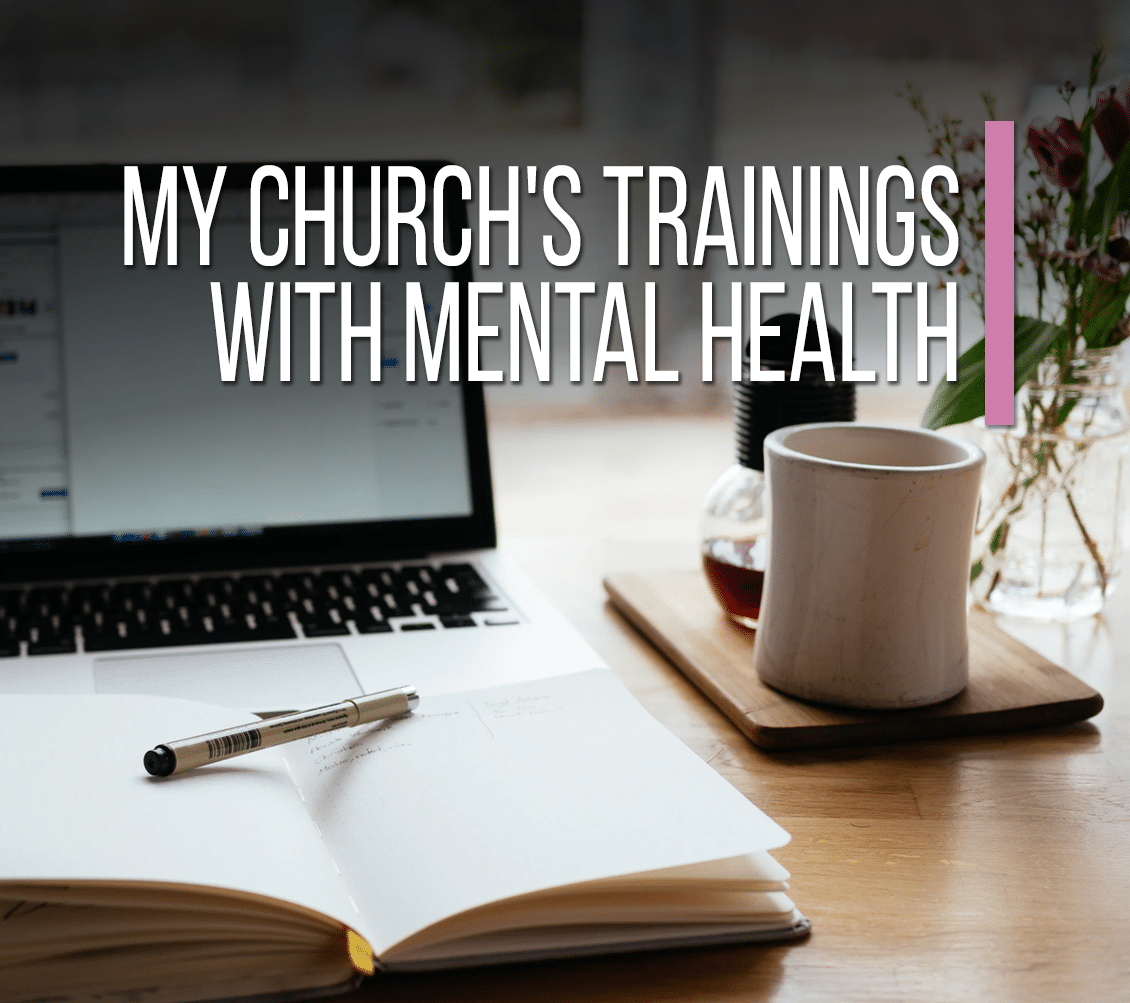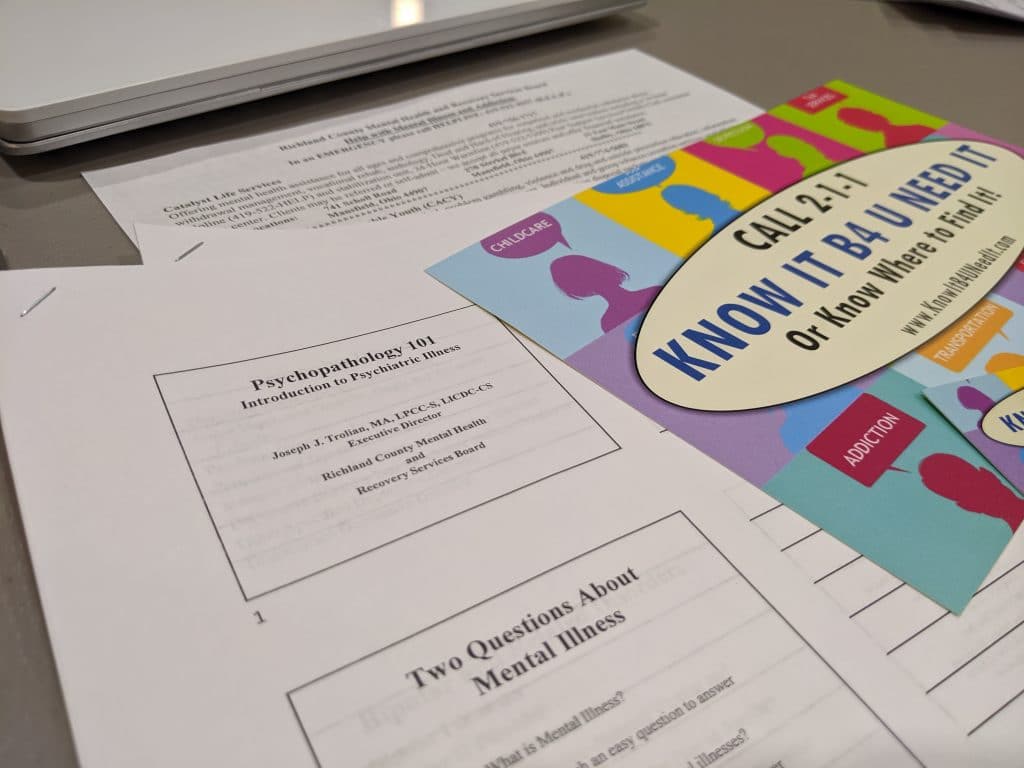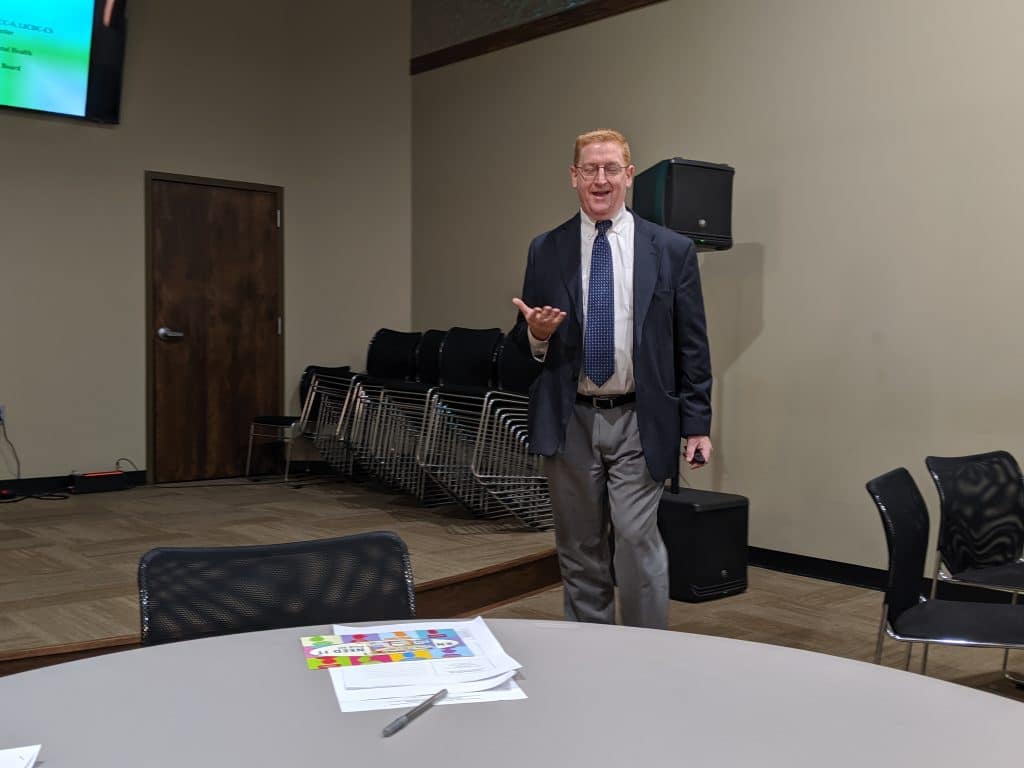Back in May, I talked about my church’s decision to fight mental health stigma, in order to better serve our congregation and community. Since then, we have created a fully running mental health team which is looking to focus on three areas to move our church forward: educating people about mental illness to empower individuals who are struggling as well as encourage those who may be able to be a support, equipping staff, volunteers, and the congregation with training events and referrals to counseling for those who have more serious concerns that pastors cannot directly serve, and create community through the sermons and small groups.
This last point, we will talk about more at a later date. For today, though, we are going to talk about the training opportunities we have had and plan to continue to have.
Last month, our church hosted a training titled Psychopathology 101 for staff, volunteers, and anyone in the community who were interested. The goal of the 3-hour presentation was to not only go over what mental illness is, but then how to help individuals who are in a crisis deescalate and what next steps are.
Options For Training
In wanting to create this presentation, we explored a couple of options for the training. These included utilizing Mental Health First Aid, working with our local National Alliance on Mental Illness (NAMI) board and county Mental Health and Recovery Board, or create something in-house from scratch.
The first was too expensive for our first-year mental health team with no budget, though for people who want to create a crisis response team, educate your security staff, and have a small church budget to devote to this necessary need, Mental Health First Aid is a great option. The last would take too long and felt like we were reinventing the wheel. So we went for working with local community partners to do the training.
I would also like to note there are several free options that can be done. NAMI offers free, online, on-demand trainings via NAMI Basics and KeyMinistry has mental health inclusion video training for free. We also plan to utilize the DYMU Suicide Prevention training video specifically with the youth ministry in the next month. But these are all cookie-cutter and broadly focused events.
What We Learned
In doing this event, we learned a couple of things that I wanted to pass along to you and remember for next time. And there will be a next time, as we are treating this first one as a test run and going to go all out for the next one.
- We Could Tailor It How We Wanted
Because we partnered with ministry experts, specifically the board who distributes county tax dollars to the local mental health agencies, we were getting information for our specific area. While the presentation could have touched on broader culturally diverse topics and options, we were trying to fit so much into a short time that this was the best option. We also got to hear about what the mental health board was doing. - This Was Also About Networking
Our mission with the mental health team is not restricted by our church’s building walls. We have been empowered to impact the whole community, so having this event allows us to put the word out to everyone to come join. Specifically, we talked with several agencies that offer some kind of treatment options and were able to connect at the training. The next event, we hope to have several counseling centers present to get to meet them for possible future referrals. - Opening It To Other Churches
We waited to incorporate this piece at this initial training, but we are hoping to do a follow up training for more of our church next year and want to open it up to all of the churches in town. Because of unnecessary territorialism with local churches, having the local county mental health and recovery board put this training on means its not our church doing this and so has nothing to do with territoriality. Instead, it’s about serving the whole body of Christ.
We’d love to hear from you. Share in the comments below how you have approached teaching, training and educating your staff, congregation, and community about mental illness as well as how to deescalate and what have you seen other churches do that was successful.


